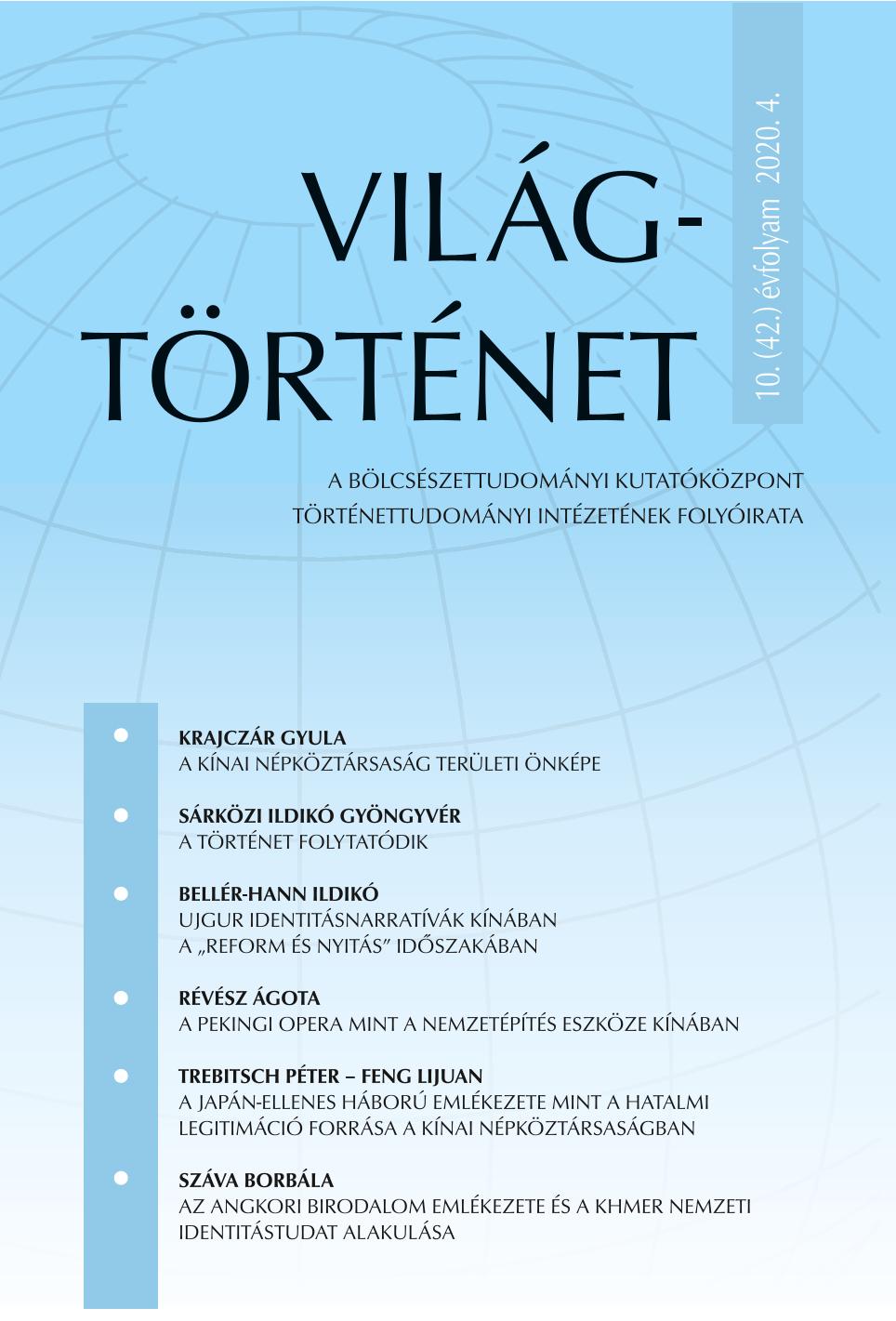A történet folytatódik. Nemzetépítés, történetírás és örökségesítés Kínában
The Story Continues. Nation-Building, History-Writing and Heritagization in China
Author(s): Ildikó Gyöngyvér SárköziSubject(s): Recent History (1900 till today)
Published by: Magyar Tudományos Akadémia Bölcsészettudományi Kutatóközpont Történettudományi Intézet
Summary/Abstract: Fei Ren is a major figure among Sibe intellectuals in the town of Changchun in north-east China. Being a local, self-taught historiographer, he published several books and studies on the origin of the Sibe ethnic group. His history-writing activity can be regarded as the bequest of a nationwide project that was launched in the 1950s and lasted for several decades. The rhetoric of historical continuity has always been key to legitimizing the power of the Communist regime and the intellectuals of Chinese ethnic groups continue to play a part in creating this rhetoric. It is their task to draw up a common, “ancient” past and thereby keep the “ancient” culture alive – or revive it. In line with the expectations of nation-building ideologues in power, Fei Ren has devoted his life and activities focusing on history-writing and creating traditions to this cause. As the outcome of a long process, the (re)construction of China’s national history and the preservation of China’s “ancient” culture came to align with UNESCO’s cultural heritage programme, declared to be universal. As a result, Fei Ren also contributed to the establishment of a medical cultural heritage research centre in 2009. Today, this centre provides the institutional background of the activities the “genealogical community” associated with Fei Ren’s clan carries out with the aim of creating traditions. Regardless of ethnic ties, anyone can join this community if they declare to belong to the symbolic descent line of one of Fei Ren’s ancestors born in the early 1800s. Like everywhere else in China, this local community exerts all efforts to have as many of their traditions, preserved and/or created, as possible included in the list of national cultural heritage. Yet, despite the constant rethinking and further thinking of the Sibe’s history and the promotion of traditions citing the Sibe’s (re)constructed history, the Sibe members of Fei Ren’s community have not been successful in this respect. Ironically, only one Han Chinese healer, Jia Mei, succeeded to have his healing activity, hallmarked as part of Sibe medicine, nominated for inclusion in the list of intangible cultural heritage of Chinese national minorities. Although born a Han Chinese, Jia Mei has declared to be the eighth-generation descendant of Fei’s clan from the Sibe ethnic group. Despite this, his achievement has induced numerous conflicts among the Sibe community in Changchun. Following a brief introduction, I will undertake to outline the deep layers of these conflicts in this study. Drawing on the above case study, I would like to provide a comprehensive picture of how history-writing and heritagization were used for manipulating ideas related to national unity and cultural diversity imbued with the ideology of descent.
Journal: Világtörténet
- Issue Year: 2020
- Issue No: 4
- Page Range: 533-558
- Page Count: 26
- Language: Hungarian

